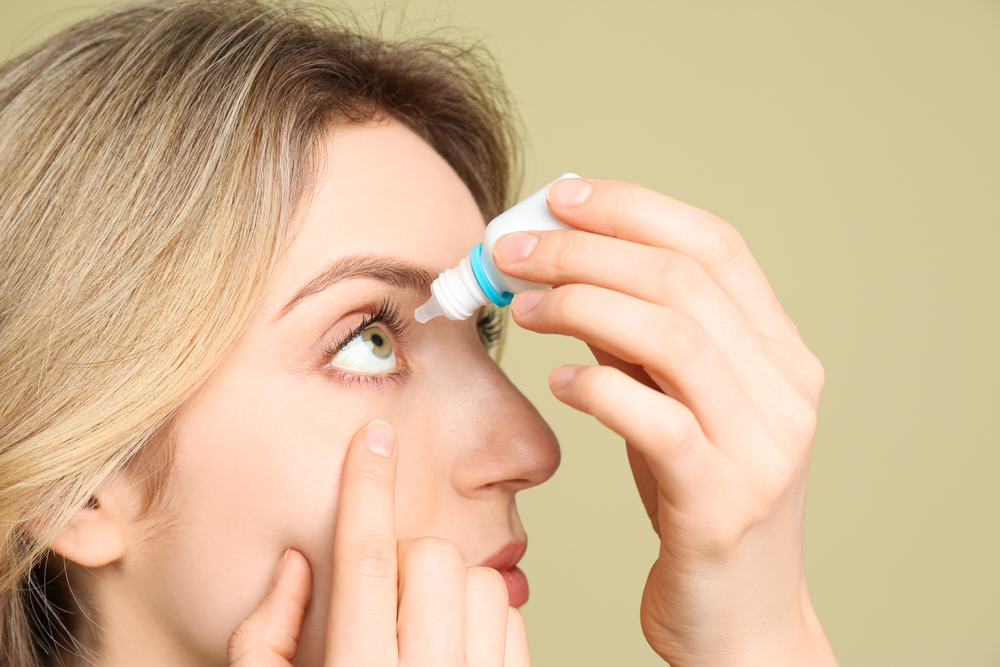
Dry eye is an ocular condition where the eyes lack adequate lubrication, causing discomfort and vision issues. This occurs when the quantity or quality of tears fails to keep the eye surface adequately moist. Recognizing the signs and addressing the root causes are key to managing this condition and enhancing ocular well-being.
Recognizing the Signs
Recognizing the signs of dry eye is a crucial step in managing the condition. While symptoms can vary from person to person, some common signs include a stinging, burning, or scratchy sensation in your eyes, stringy mucus in or around your eyes, sensitivity to light, eye redness, a sensation of having something in your eyes, difficulty wearing contact lenses, difficulty with nighttime driving, watery eyes, and blurred vision or eye fatigue.
Symptoms Associated with Dry Eye
There are several symptoms associated with dry eye. These symptoms can range from mild to severe and can impact your quality of life. The most common symptoms include a gritty, sandy feeling in the eye as if there's something in your eye that you can't remove, redness, and sensitivity to light. You might also experience a stinging or burning sensation, or your eyes might water as if you're crying.
Sometimes, dry eye symptoms can lead to blurred vision or eye fatigue. You might find it difficult to drive at night, or you might find that your eyes get tired easily, especially when you're reading, looking at a computer screen, or doing anything that requires you to focus for extended periods.
Dry eye can also cause discomfort when wearing contact lenses. Many people who think they are allergic to contact lenses have dry eye. The discomfort can be so great that some people feel they have to limit their screen time, or they can't wear contact lenses at all.
Risk Factors and Causes of Dry Eye
There are several risk factors and causes of dry eye. Aging is one of the most common factors. Dry eye is a part of the natural aging process and most people over the age of 65 experience symptoms of dry eye. In addition, it's more common in women, especially those who are pregnant, using birth control pills, or going through menopause.
Dry eye can also be caused by certain medical conditions, such as diabetes, rheumatoid arthritis, lupus, scleroderma, Sjogren's syndrome, thyroid disorders, and vitamin A deficiency.
Meibomain gland dysfunction (MGD) plays a pivotal role in the development of dry eye. When the glands in the eye become dysfunctional, either due to blockages or changes in the quality of their secretions, the lipid layer of tears becomes compromised. As a result, tears evaporate too quickly, leaving the eye inadequately lubricated.
Certain medications can also cause dry eye by reducing tear production. These include certain drugs for high blood pressure, antihistamines, antidepressants, and drugs for Parkinson's disease.
Treatment Options
There are several treatment options for dry eye, ranging from lifestyle changes and home remedies to prescription medications and procedures. The right treatment for you will depend on the severity of your symptoms and whether or not there's an underlying condition causing your dry eye.
Low light therapies, such as intense pulsed light (IPL) and low-level therapy (LLLT), have shown promise in treating dry eye by targeting inflammation and improving the function of the meibomian glands. These innovative approaches aim to address the underlying causes of dry eye, offering potential relief and improved eye comfort.
Managing Dry Eye for Better Eye Health
Dry eye is a common condition that can significantly impact your quality of life. Recognizing the signs of dry eye, understanding the various symptoms associated with the condition, and being aware of the risk factors and causes can help you seek timely and appropriate treatment. With a comprehensive approach that includes professional diagnosis and a variety of treatment options, you can effectively manage your dry eye for better eye health.
If you are experiencing symptoms of dry eye, consult our professionals at Eyewellniss in our Edgewater, Livingston, or Paramus, New Jersey office. Please call (201) 945-8931, (973) 535-3344 or (201) 712-0888 to schedule an appointment today.









